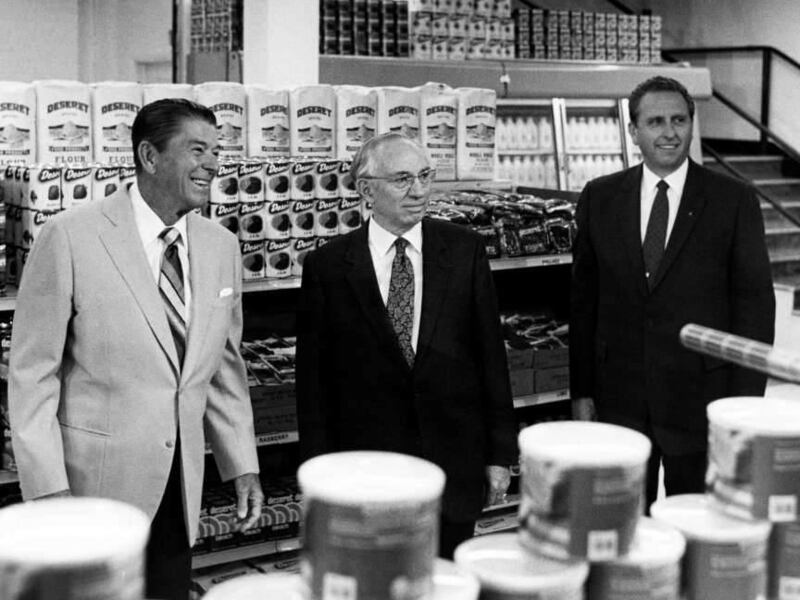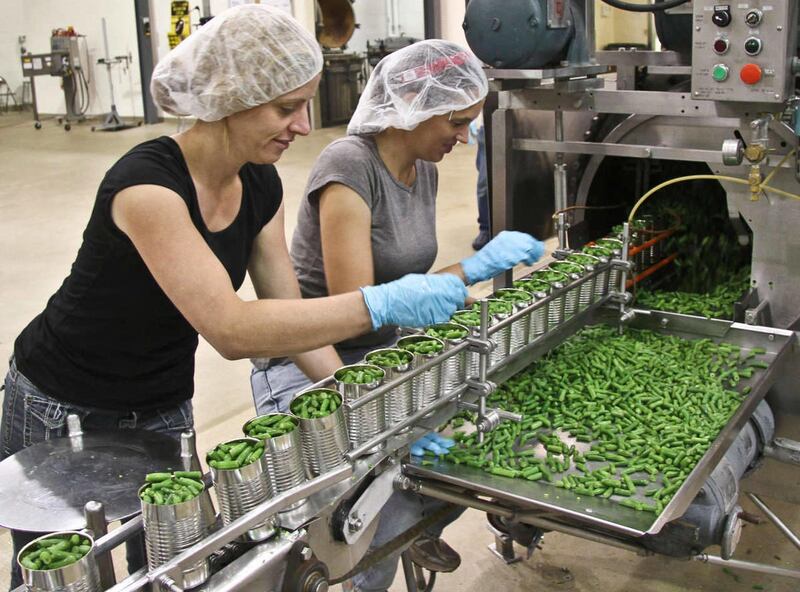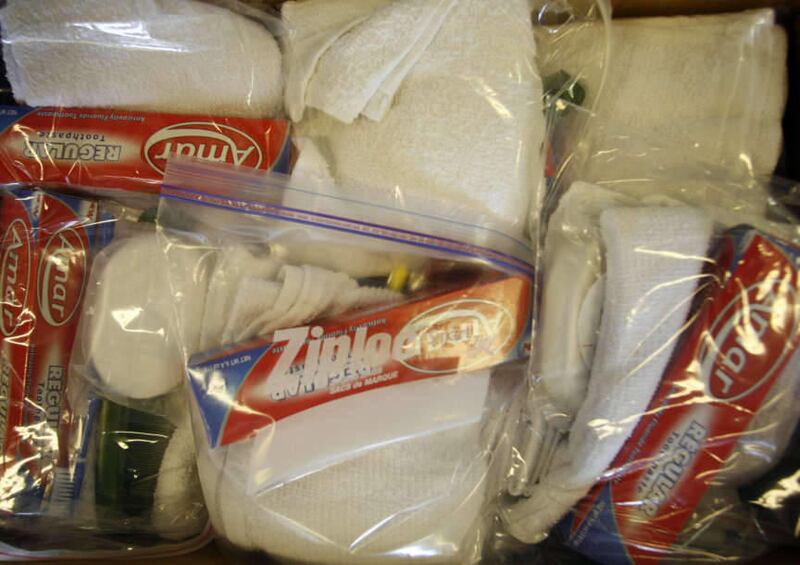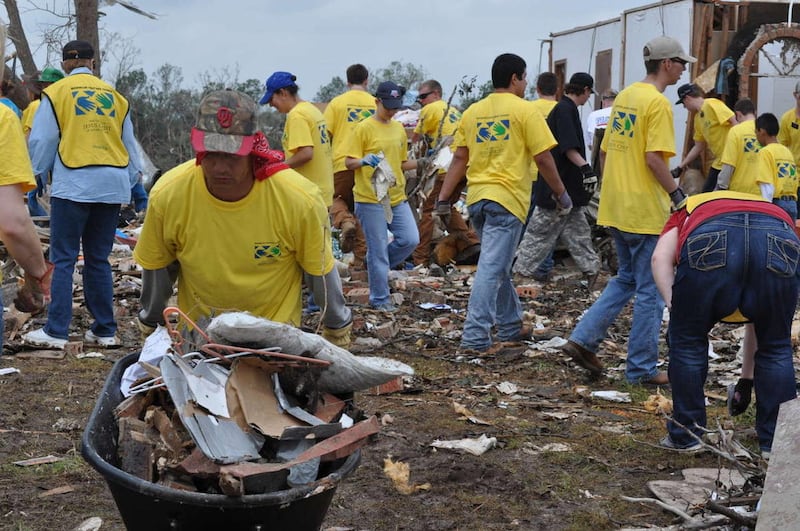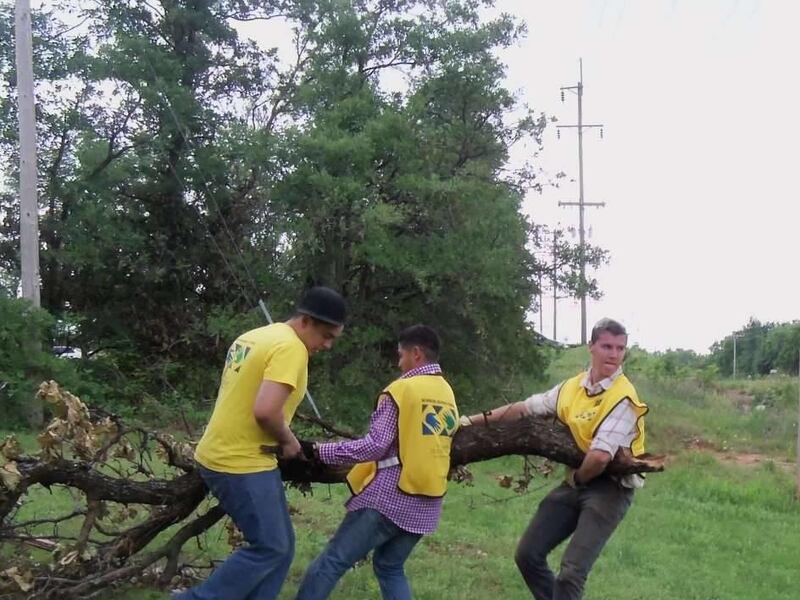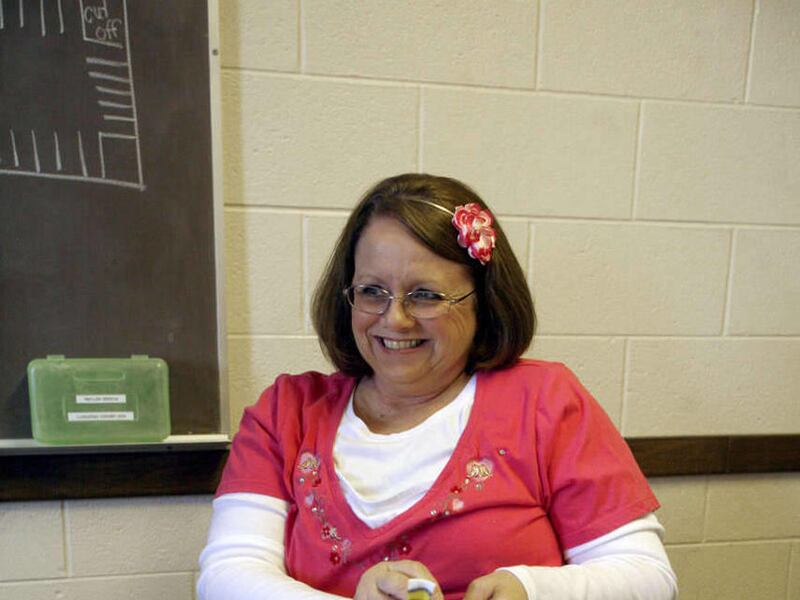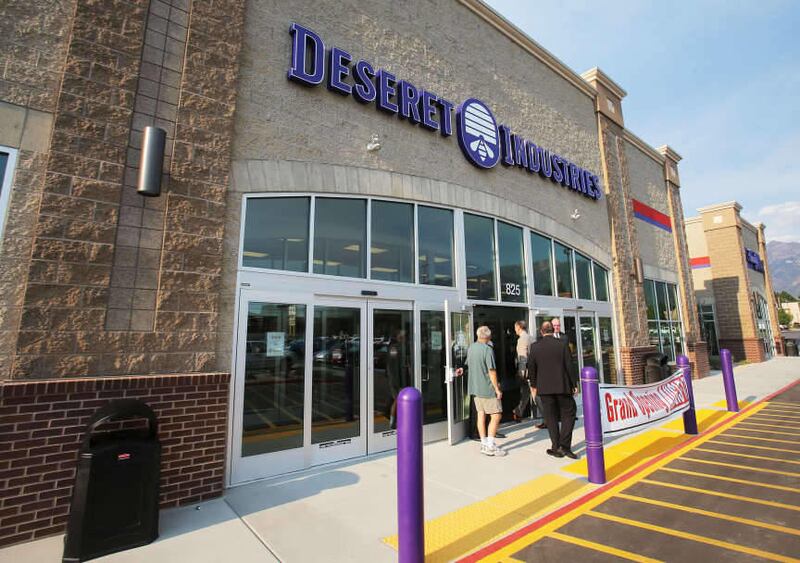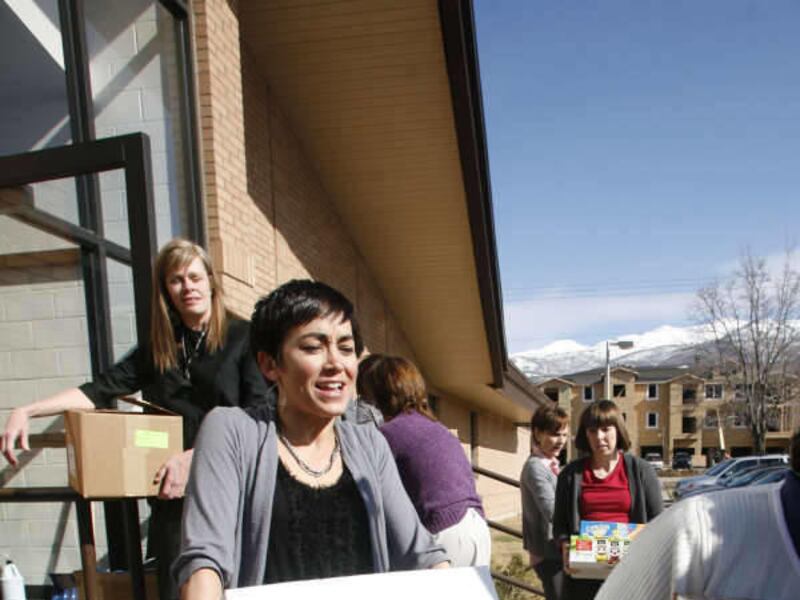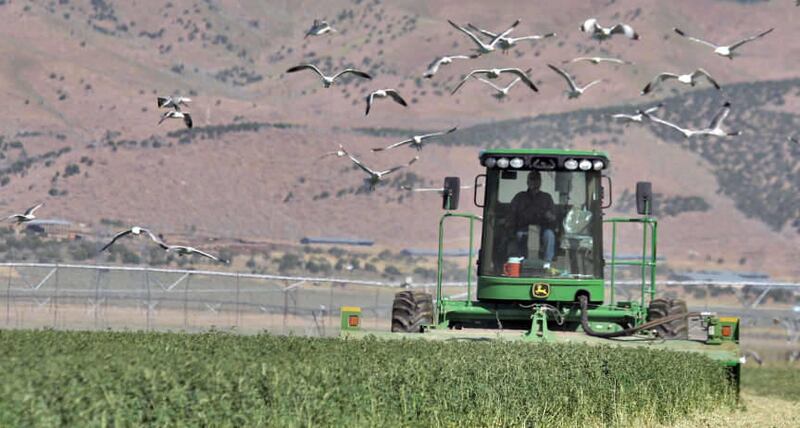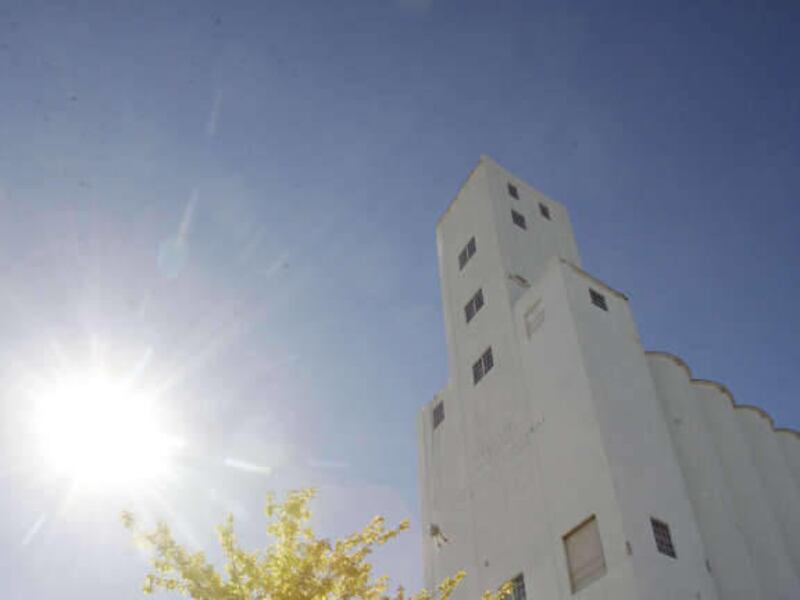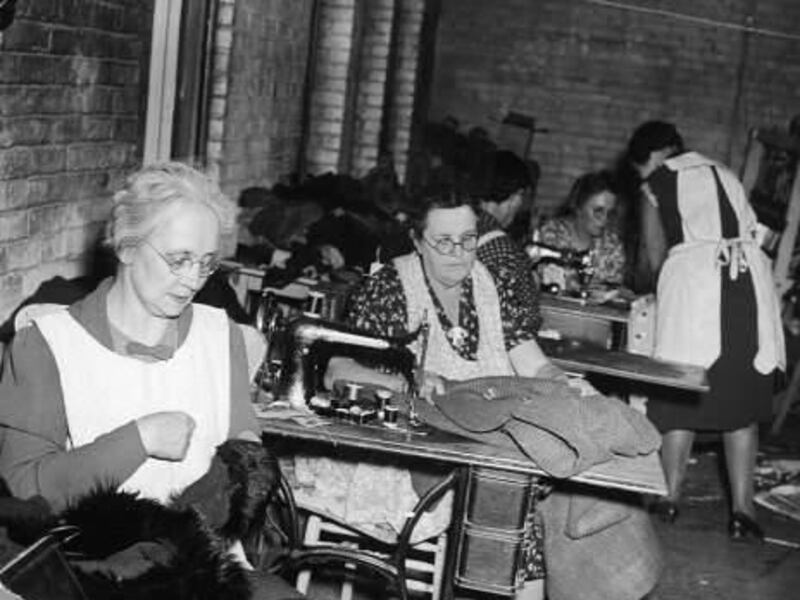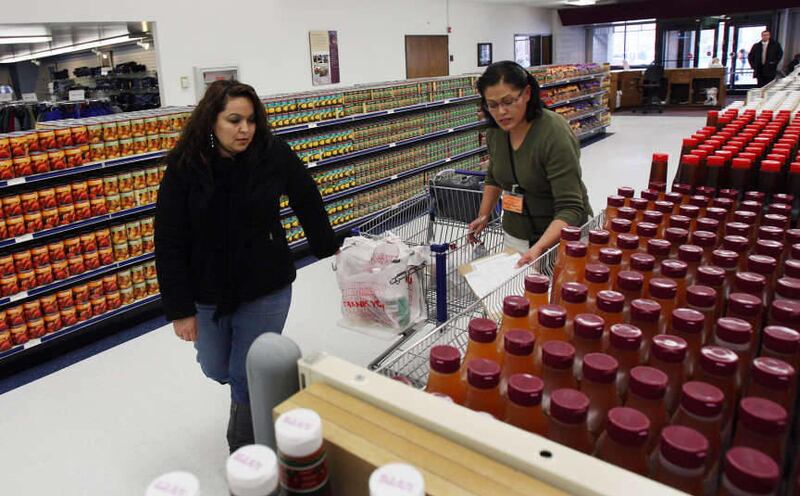SALT LAKE CITY — The attention of millions of Mormons is focused this weekend on Salt Lake City, where the 183rd Semiannual General Conference of The Church of Jesus Christ of Latter-day Saints will open Saturday morning under sunny skies and cool, crisp fall temperatures.
They will participate either by attending the five different conference sessions in downtown Salt Lake City or via television, radio, satellite and Internet broadcasts, including — for the first time ever — live coverage of the male only priesthood meeting on general access TV and Internet outlets.
Latter-day Saints look forward to the two-day semiannual conferences as a time to receive counsel, inspiration and instruction from their church leaders, who choose their own topics, according to Elder Jeffrey R. Holland of the Quorum of the Twelve Apostles.
One of the topics that church leaders are frequently led by the Spirit to address is the responsibility of the church and its members to care for the poor and the needy. Although it should be noted that President Dieter F. Uchtdorf, second counselor in the First Presidency, said in October 2011 that it isn’t “simply another gospel topic.”
“I believe that in the Lord’s plan, our commitment to welfare principles should be at the very root of our faith and devotion to him,” President Uchtdorf said. “Since the beginning of time, our Heavenly Father has spoken with great clarity on this subject: from the gentle plea, ‘If thou lovest me … thou wilt remember the poor, and consecrate of thy properties for their support’; to the direct command, ‘Remember in all things the poor and the needy, the sick and the afflicted, for he that doeth not these things, the same is not my disciple’; to the forceful warning, ‘If any man shall take of the abundance which I have made, and impart not his portion, according to the law of my gospel, unto the poor and the needy, he shall, with the wicked, lift up his eyes in hell, being in torment.’”
“The two great commandments — to love God and our neighbor — are a joining of the temporal and the spiritual,” President Uchtdorf continued. “It is important to note that these two commandments are called ‘great’ because every other commandment hangs upon them. In other words, our personal, family and church priorities must begin here. All other goals and actions should spring from the fountain of these two great commandments — from our love for God and for our neighbor.”
In a landmark conference address on the subject in October 1972, President Marion G. Romney reminded his listeners that the early Latter-day Saints were impoverished, and yet they were reminded that in order to qualify as disciples of Jesus Christ they had to remember “the poor and the needy, the sick and the afflicted.”
“What will be our plight,” President Romney said, “if in our affluence we fail to remember them?
“In this modern world plagued with counterfeits for the Lord’s plan, we must not be misled into supposing that we can discharge our obligations to the poor and the needy by shifting the responsibility to some governmental or other public agency,” he continued. “Only by voluntarily giving out of an abundant love for our neighbors can we develop that charity characterized by Mormon as ‘the pure love of Christ.’ This we must develop if we would obtain eternal life.”
Later in the sermon President Romney spoke specifically about the LDS Church’s welfare program, which was established in the 1930s “to meet the needs of our times.”
“Through this program,” he said, “there are made available for the poor and the needy, in addition to tithing and fast offering funds, vast quantities of many varieties of food, clothing, fuel and other necessities of life. The program also supplies employment opportunities for all who can and will work.
“Thus, through the welfare program, the Lord has given us specific instructions as to how we must provide for the poor in this our day, and he has left no doubt about the dire consequences if we fail to do so.”
Six years later President Romney spoke on the subject again, referring to caring for the poor and needy as “a covenantal obligation.”
“Few, if any, of the Lord’s instructions are stated more often, or given more emphasis in the scriptures than is the commandment that we members of his church take care of the poor,” President Romney said. “It follows, then, that we look after our poor and distressed not only because it is convenient, or exciting or socially acceptable; we should do it first and foremost in fulfillment of our covenant with the Lord that we will do so.”
We should also do it because we love the Lord and want to serve him and his children, said Elder Holland in 1996.
“I know that a talk in general conference is not going to cut through the centuries of temporal inequity that have plagued humankind, but I also know that the gospel of Jesus Christ holds the answer to every social and political and economic problem this world has ever faced,” Elder Holland said. “And I know we can each do something, however small that act may seem to be. We can pay an honest tithe and give our fast and free will offerings, according to our circumstances. And we can watch for other ways to help. To worthy causes and needy people, we can give time if we don’t have money, and we can give love when our time runs out. We can share the loaves we have and trust God that the cruse of oil will not fail.”
Echoing a similar theme, Presiding Bishop H. David Burton pointed out in April 2011 that “since the foundation of the world, the cloth of righteous societies has ever been woven from the golden threads of charity.”
“We yearn for a peaceful world and for prosperous communities,” Bishop Burton said. “We pray for kind and virtuous societies where wickedness is forsaken and goodness and right prevail. No matter how many temples we build, no matter how large our membership grows, no matter how positively we are perceived in the eyes of the world — should we fail in this great core commandment to ‘succor the weak, lift up the hands which hang down, and strengthen the feeble knees,’ or turn our hearts from those who suffer and mourn, we are under condemnation and cannot please the Lord and the jubilant hope of our hearts will ever be distant.
“As sons and daughters of God, we cannot inherit the full measure of eternal life without being fully invested in caring for each other while we are here on earth,” he continued. “It is in the benevolent practice of sacrifice and giving of ourselves to others that we learn the celestial principles of sacrifice and consecration.”
Elder L. Tom Perry of the Quorum of the Twelve Apostles gave the Christian covenant of caring for the poor and needy a personal touch in April 1986 when he shared a memory from his childhood, when his father was serving as a ward bishop during the Great Depression.
“I watched him administer to the needs of the poor in his ward with great love and tenderness,” Elder Perry said. “How often I raced home from school anticipating a planned activity. As I would round the corner of our home, there I would see sacks of flour, sugar and other commodities. My heart would fall, as I knew it would be another evening out with Father as he delivered these commodities to those in need. The planned activity would have to be canceled for that evening.
“When he arrived home, I was always enlisted to help him put the commodities in the car and travel with him to make the deliveries. Sometimes I would grumble under my breath for having been so put upon, but then I would have the remarkable experience of watching the light come back into the eyes of a depressed family as food was brought into their home. I always returned home from those experiences with an exhilarated feeling of watching the Church in action as it was caring for its poor and its needy through fast offerings and good, kind priesthood leaders.”
Text box
LDS general conference notes
- KSL meteorologist Grant Weyman predicts sunny days both Saturday and Sunday, with cold mornings both days and temperatures as high as 63 on Saturday and 70 on Sunday. No precipitation is expected — “conference weather” notwithstanding.
- Tickets are required to enter the Conference Center, where attendees will need to pass through a security check. Cameras, recording devices, weapons, food, backpacks, packages and large bags will not be allowed. A stand-by line for those without tickets will begin at the north gate of Temple Square.
- Overflow seating will be available in the Tabernacle, the North Visitors’ Center on Temple Square and the Joseph Smith Memorial Building for all sessions. Overflow seating will also be available in the Conference Center Theater for priesthood and Sunday sessions only. Overflow seating for Spanish speakers will be provided in the Assembly Hall for all five sessions. Tickets are not required for admission to overflow facilities.
- Parking options in downtown Salt Lake City are limited. Conference attendees are invited to carpool or use public transportation to relieve downtown traffic congestion. Those driving are strongly encouraged to allow extra time for travel, locating a parking spot and being seated in the Conference Center. Public parking is not available at the Conference Center parking lot. Conference attendees should avoid parking in front of homes in downtown residential areas. Cars parked on neighborhood streets may be ticketed or towed at the owner’s expense. Disability parking is located at the northwest corner of West Temple and North Temple but is limited and available on a first-come, first-serve basis.
- Information regarding audio and video streams via the Internet can be found at conference.lds.org. A detailed broadcast schedule of general conference can be found at www.bonneville.info. For additional information on availability in your area and rebroadcasts, visit www.byutv.org.
Email: jwalker@desnews.com

